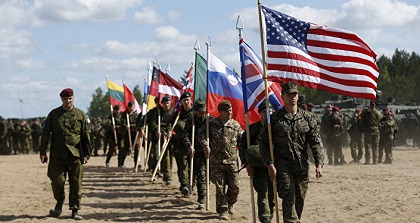"Excuse me for disturbing you, I'm calling regarding my brother."
"Do you have any information about my husband?"
"Hello hotline, is this the place that you can find out if a person is alive?"
These are excerpts from audio recordings made to a Ukrainian government-run hotline. Mothers and fathers, wives, siblings and others are engaged in a desperate search for their loved ones as Russia's war with Ukraine extends seemingly without end.
The shaky voices at the end of the line are not calling to search for Ukrainians, however -- they are looking for information on Russian soldiers.
In recordings shared exclusively with CNN by the Ukrainian officials operating the hotline, the desperation and uncertainty in the callers' voices sheds light on how tightly Moscow is controlling communications about the war.
The recordings indicate that many Russian soldiers seemed to not have known what their plans were or why they were being deployed, and bolster reports of Russian soldiers being denied communication with their families.
A wife, speaking through tears, calls with a desperate inquiry about her husband:
Translated transcript of phone call
OPERATOR
When was the last time he contacted you?
OPERATOR: When was the last time he contacted you?
CALLER( WIFE OF A RUSSIAN SOLDIER): On February 23 when he crossed the border.
OPERATOR: Did he tell you where he was going?
CALLER: He said towards Kyiv.
OPERATOR: Did he say why?
CALLER: He didn't say anything else, no.
Videos have appeared online since the invasion began on February 24 showing Ukrainian civilians and soldiers allowing Russian soldiers to call home and speak with their parents.
The hotline, called "Come Back From Ukraine Alive," was established by the Ukrainian Interior Ministry, which has acknowledged that the initiative is both a humanitarian and a propaganda tool.
Kristina, a pseudonym for the woman tasked with running the hotline, asked CNN not to disclose her identity for security reasons. She is a psychologist by training.
From an undisclosed location in Ukraine's capital Kyiv she explained the aims of the hotline.
"First of all, we will help [the Russian solders] find their relatives who were deceived and without knowing where and why they are going and found themselves in our country. And secondly, we will help to stop the war in general," she told CNN.
Since being established in the opening salvos of this war, the hotline has been ringing non-stop, Kristina said. It has taken more than 6,000 calls since February 24. The calls have come from locations as far apart as Vladivostok in Russia's far east and Rostov-on-Don, close to the Ukrainian border.
Kristina, a psychologist by training, takes calls from Russians seeking information about their relatives in the Russian Army.
From an undisclosed location in Ukraine's capital Kyiv she explained the aims of the hotline.
"First of all, we will help [the Russian solders] find their relatives who were deceived and without knowing where and why they are going and found themselves in our country. And secondly, we will help to stop the war in general," she told CNN.
Since being established in the opening salvos of this war, the hotline has been ringing non-stop, Kristina said. It has taken more than 6,000 calls since February 24. The calls have come from locations as far apart as Vladivostok in Russia's far east and Rostov-on-Don, close to the Ukrainian border.











0 Comments